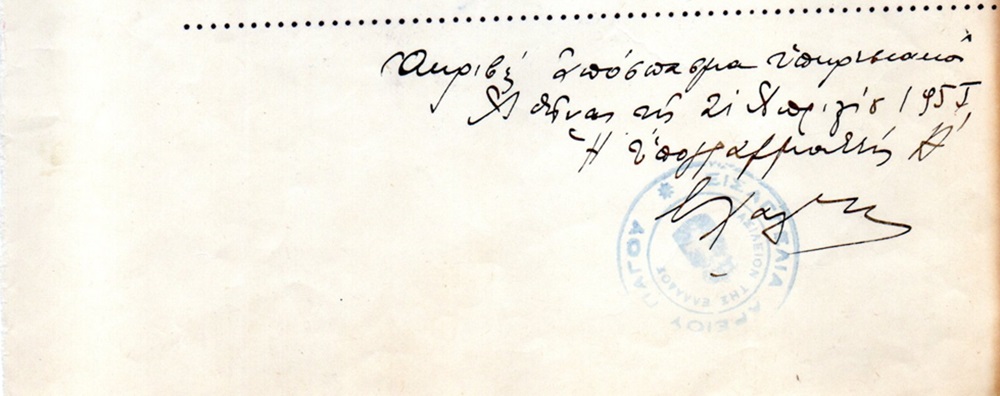
George Charonitis
Department of Archives Processing, National Archives Indexing and Special Historical Archives
General State Archives, Central Service
The year was 1953, a period during which the banning and confiscation of books, including works by renowned authors such as Victor Hugo and Fyodor Dostoevsky, was a common practice. In this context, an attempt was made to ban two books: Tasos Livaditis‘ poetry collection “Blowing at the Crossroads of the World” and Andreas Pangalos’ translation of Stalin’s work “Economic Problems of Socialism” in the USSR. The two authors were arrested in 1954 and charged with high treason under Article 2 of AN509/1947, and the copies of their books were confiscated.
The trial was held on 9 February 1955 at the Athens Court of Appeal. The defence called upon a number of well-known writers and journalists to give evidence, while the prosecution called upon police officers and a university professor. The Deputy Prosecutor of the Court of Appeal, Nikolaos Laskaris, argued in favour of the defendants being acquitted and the confiscated documents being returned (222 copies of the work of Livaditis and 7 copies of the translation of Pangalos). The acquittal was greeted with enthusiasm by the intellectual world and the press.
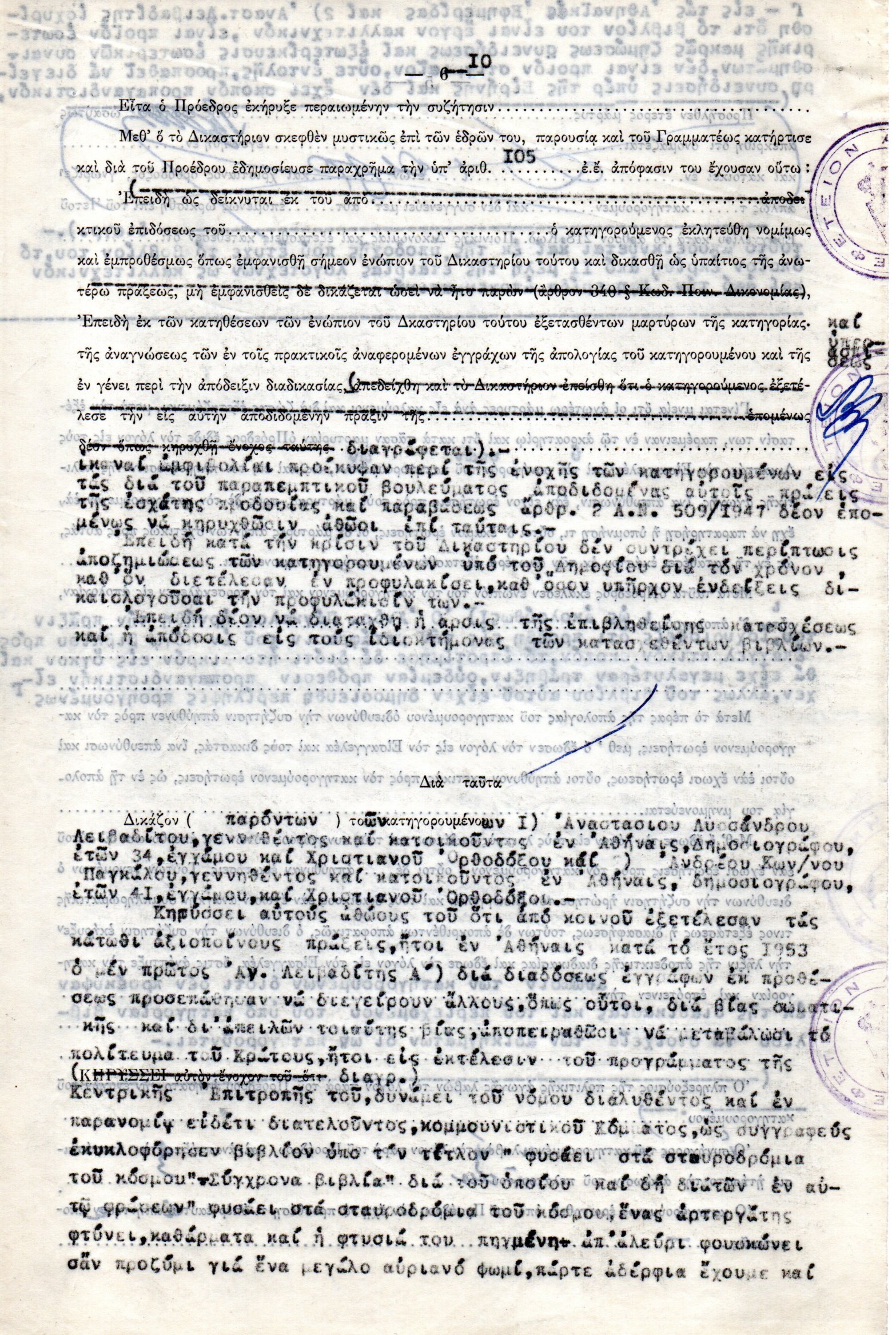
The indictment and the verdict as stated in the record of the trial (9-2-1955)
Nevertheless, the approval was not without consequence. Initially, on 11 February 1955, the Prosecutor of the Court of Appeal sent to the Prosecutor of the Supreme Court the sheet 713/10-2-1955 of the Avgi newspaper, which published a summary of Laskaris’ trial and speech, calling for the end of both censorship and deportation of intellectuals. Laskaris was summoned to provide an explanation, which he did in the form of a report dated 22 February 1955.Subsequently, an order from the Minister of Justice (OP138/11-4-1955) for administrative questioning against Laskaris and the members of the court’s composition was received by the Prosecutor of the Supreme Court.
The rationale behind this decision was a report from the Central Intelligence Office (KIP) pertaining to Laskaris’ social views. The report highlighted the following key points: The Athens General Security Sub-Directorate Office has the following information regarding the background of the Deputy Prosecutor of the Court of Appeal, Mr Laskaris:
“He was a member of the People’s Committee of Metaxourgio during the movement of December 1944 and a judge on the EAM-ELAS Market Law. Information from the same source indicates that he served as a People’s Judge in Laconia during the Occupation and that he is already alleged to be a supporter of the EDA”. The Office further states that “the manner in which the prosecution is conducting the trial gives the impression that the accused is not entirely unrelated to the past of the prosecutor”. The report was accompanied by a note, which provided a summary of Laskaris’s speech. In this speech, the Office highlighted a particular phrase concerning the releases of books of Marx, Engels and Stalin, stating that “something to be taught, be taught and acquainted with it.”
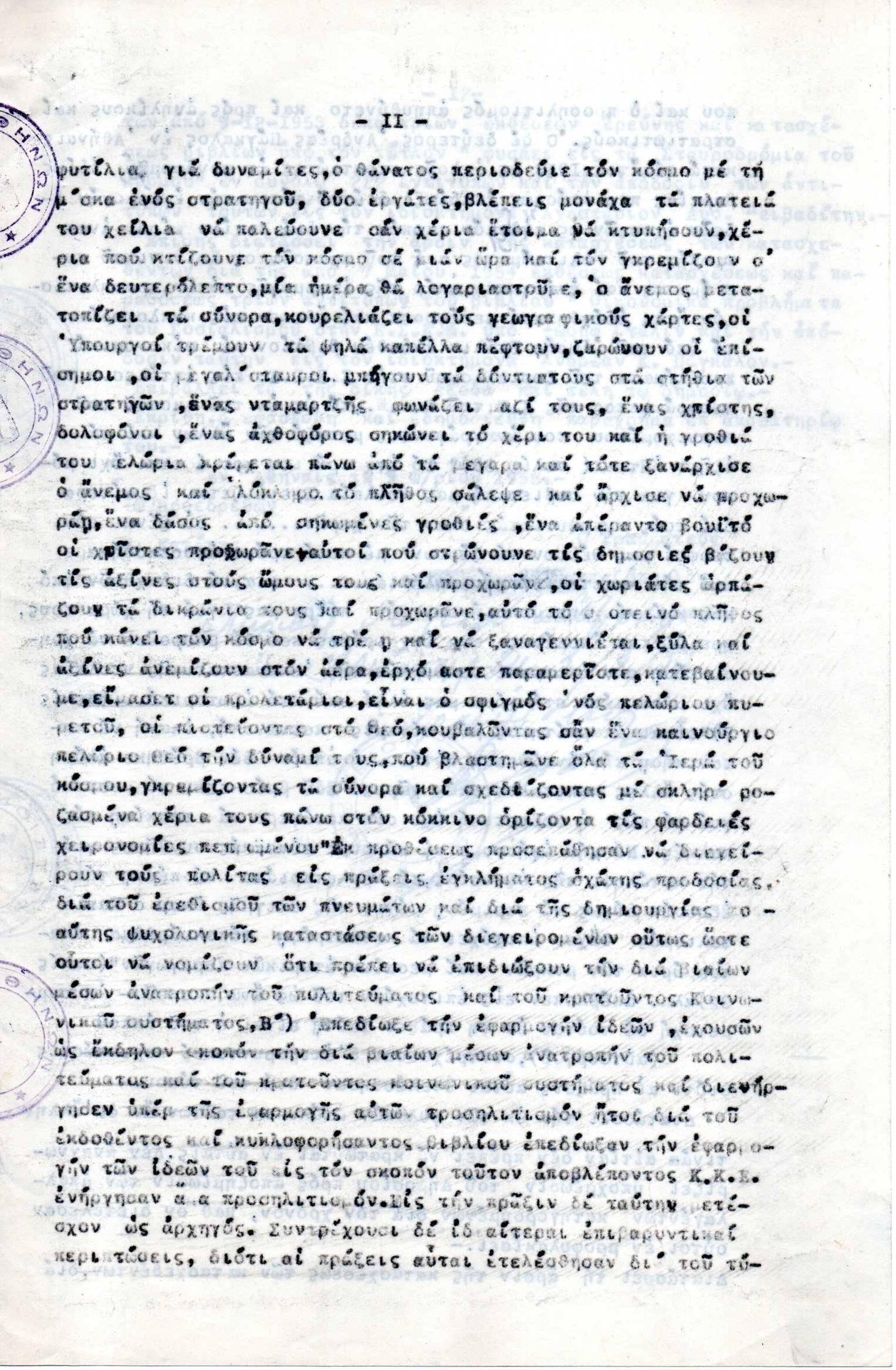
The indictment and the verdict as stated in the record of the trial (9-2-1955)
The initial accusation that he “participated in a popular committee in a district of Metaxourgeio engaged in the distribution of food” during the December Revolt was already well-known. As a consequence of this, he was suspended in 1945 and underwent examination by the Committee of the Thirteenth Resolution and subsequent review by the Council of Legitimacy. During the course of these proceedings, it became evident that his involvement was obligatory and limited to a brief period of time. When the opportunity arose, he relocated from Metaxourgeio to Kolonaki, where he took up residence. These facts were small print for the Security, which, moreover, upgraded Laskaris from a simple member of the People’s Committee in question to…”judge of the EAM-ELAS’ Market Law”.
The second accusation comes from the years of the Occupation. According to the testimony of the first judge of Patras, Georgios Kalogeropoulos (29.10.1946), he and Laskaris served in Sparta in June 1941. In 1943, Laskaris was transferred to another office, but he could not go because of the “anarchy in the countryside” and so he remained in Sparta until January/February 1944, when he was transferred to the Court of First Instance in Corinth. This forced stay in Sparta was enough to have Laskaris christened as a lay judge of Laconia during the Occupation. The accusation was, of course, untrue. According to all the testimonies of his colleagues at the time, he spoke out against the “crimes” of ELAS; moreover, he could not have been socially favourable to the EAM, since he had married the daughter of Katsakos Mavromichalis in Sparta “and received a large dowry”, “and his father-in-law, with whom he was then on good terms, was plundered and seized by the rebels after the liberation“.
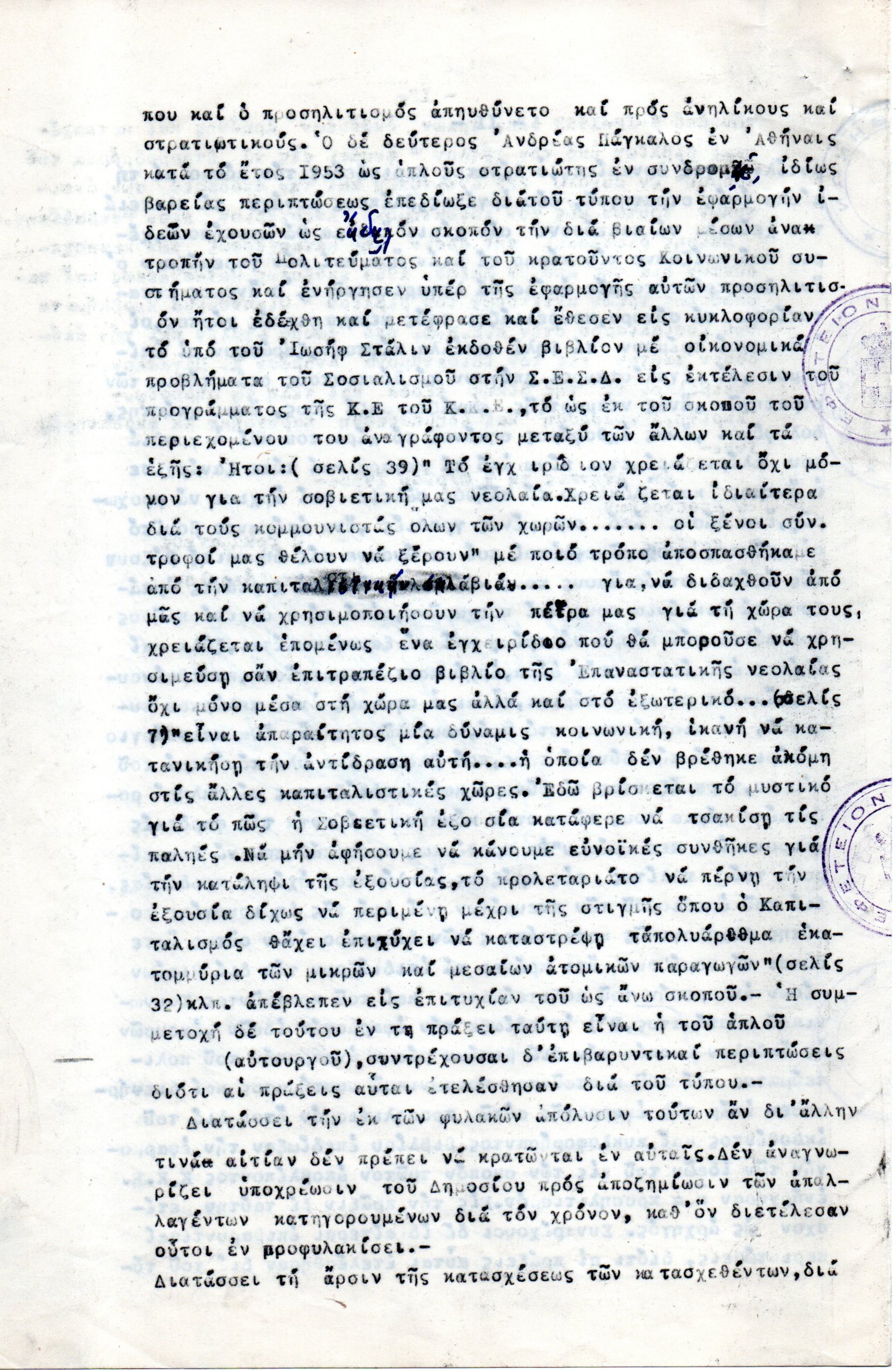
The indictment and the verdict as stated in the record of the trial (9-2-1955)
It was common practice in the information bulletins of the security services to describe as kin to the EAM people who, during the Occupation, could not move because of the state of war, or who were forced to leave their duty to avoid reprisals by the occupying forces. In the case of Laskaris, these accusations had no consequences. However, it is striking that such allegations were made even against judicial officials, while of the numerous reviews on the case, the article that was highlighted was the one of Avgi Newspaper.
The file of the administrative investigation of Deputy Prosecutor Nikolaos Laskaris, with the confidential file number 213/11-4-1955, is included in the confidential correspondence file of the Ministry of Justice, which is under the Central Service of the G.S.A. The file contains the relevant correspondence, Laskaris’ report with attached clippings from the “nationalist press”, the minutes of the trial (2.9.1955), sworn testimonies of members of the court and witnesses at the trial, copies of extracts from the decisions of the Committee of the Ninth Resolution and the decision of the Council of Legitimacy, extracts from inspection reports of judicial officials and testimonies of witnesses from the period 1945-1947.

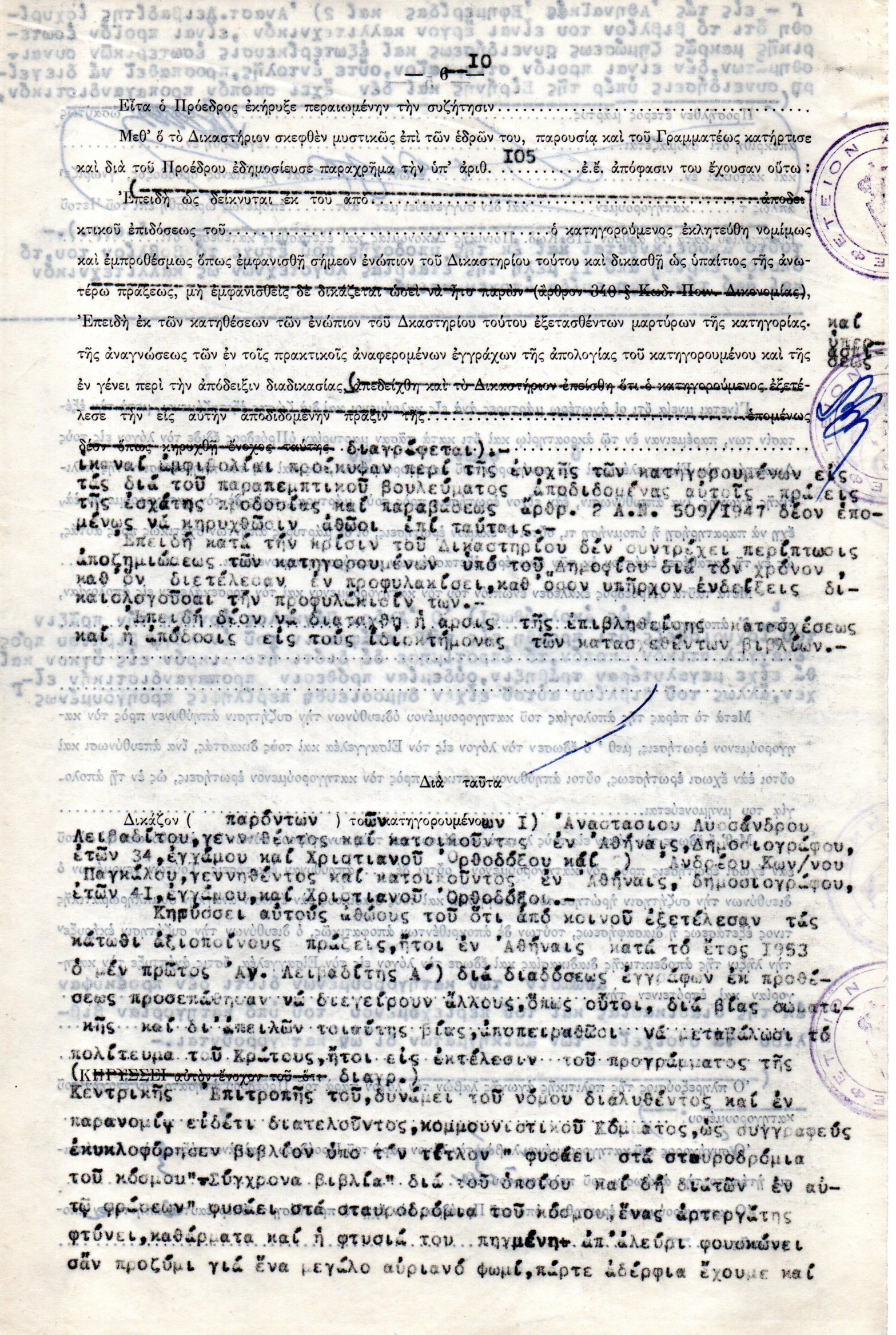
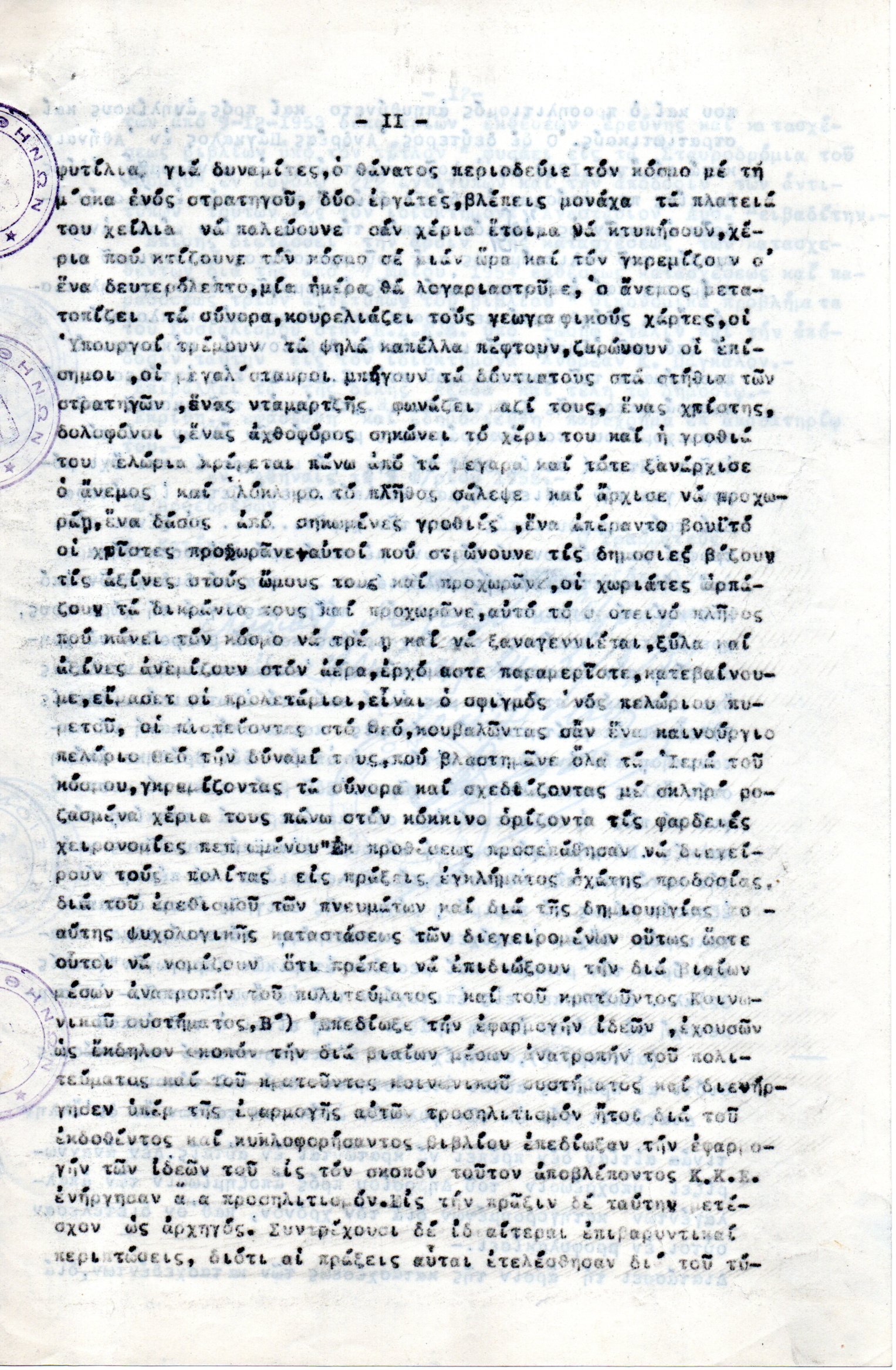
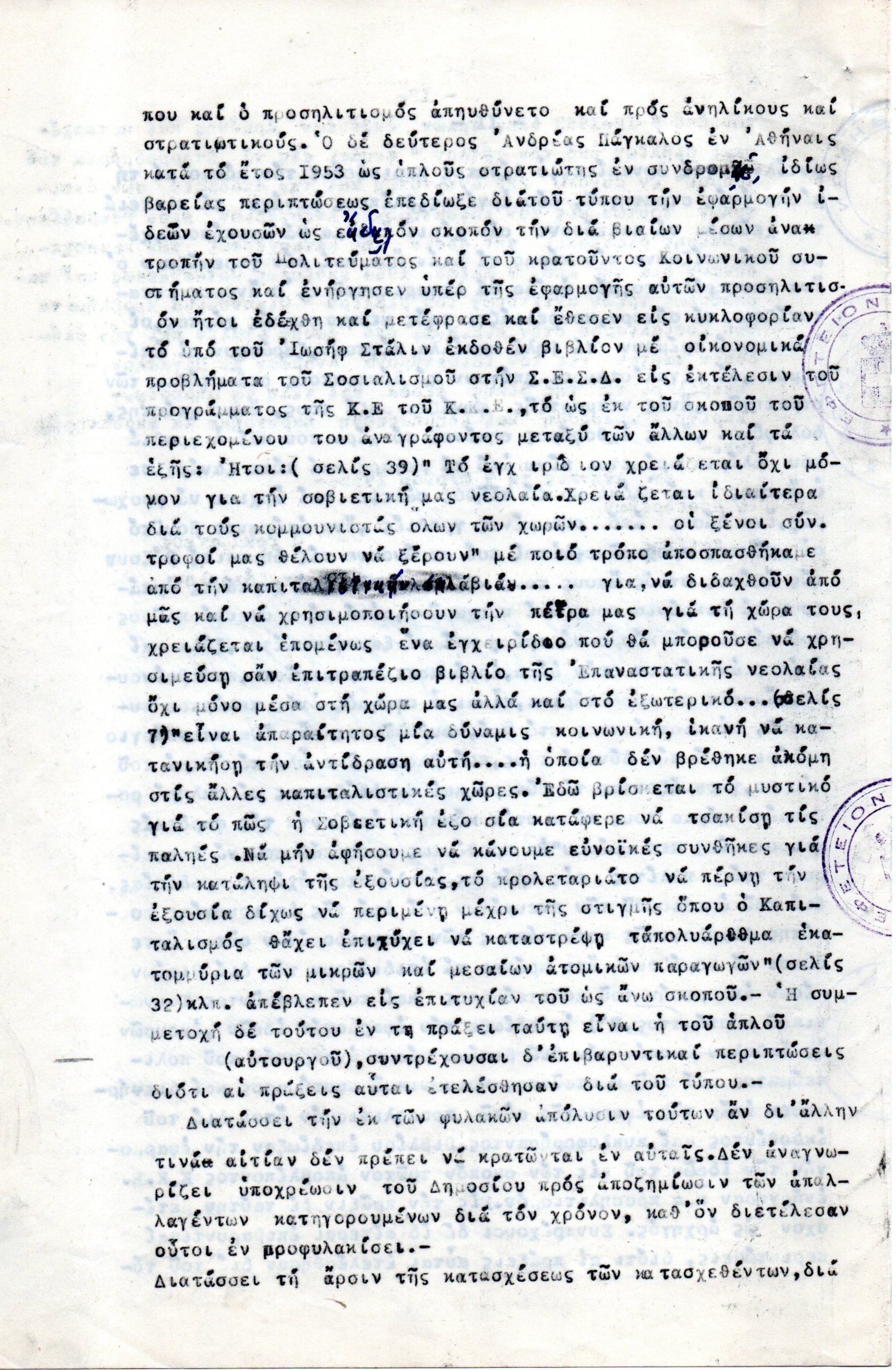
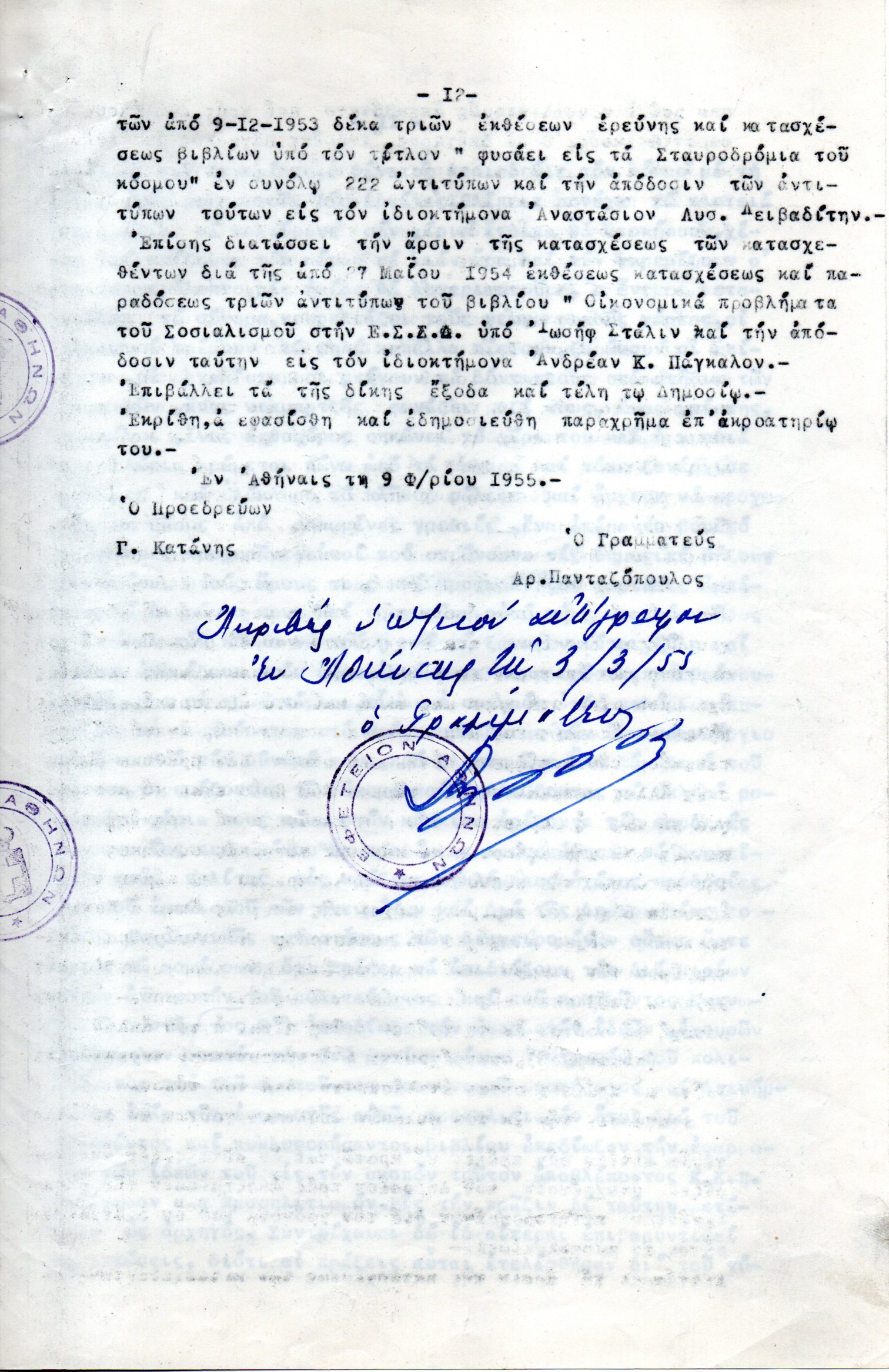
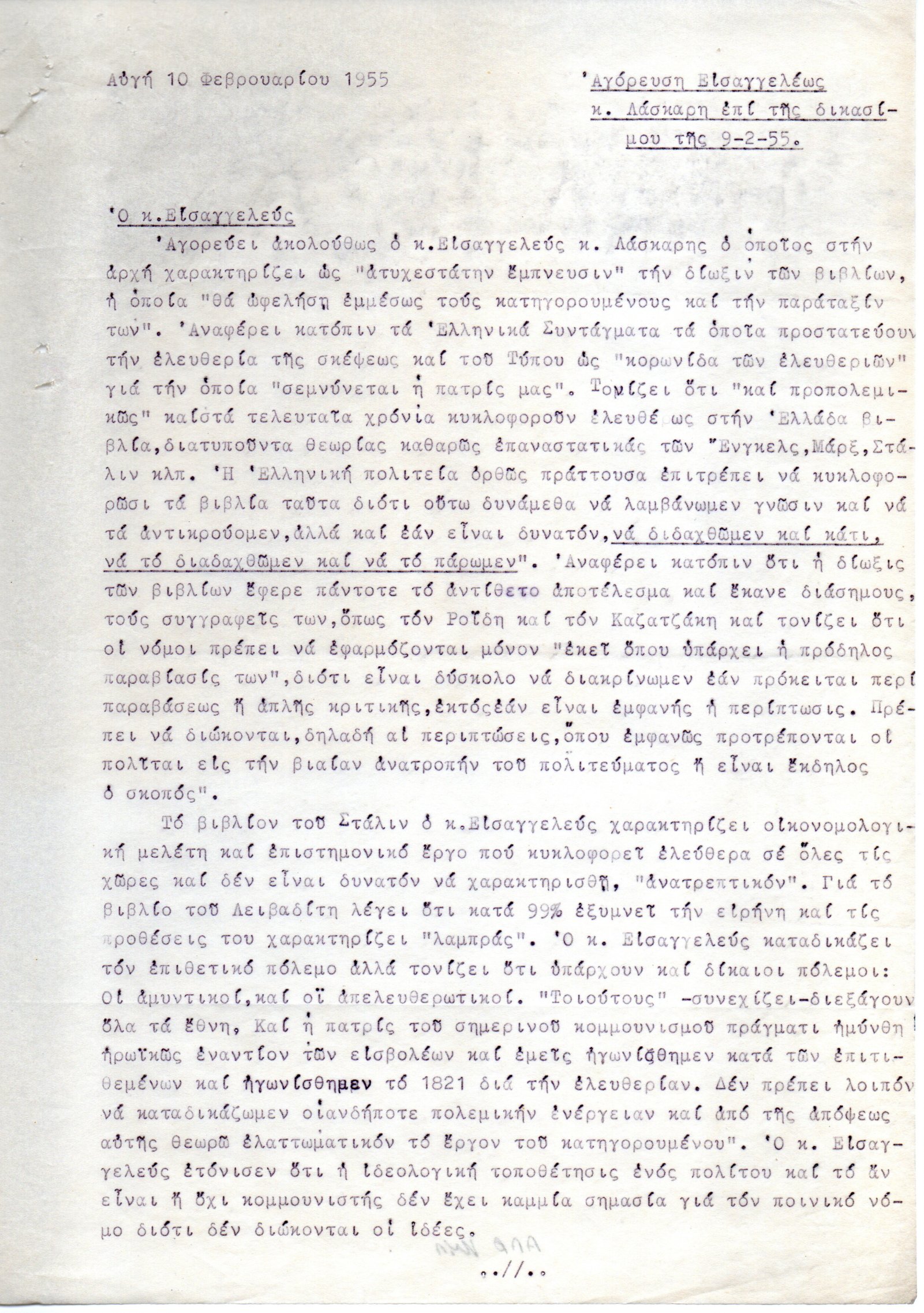
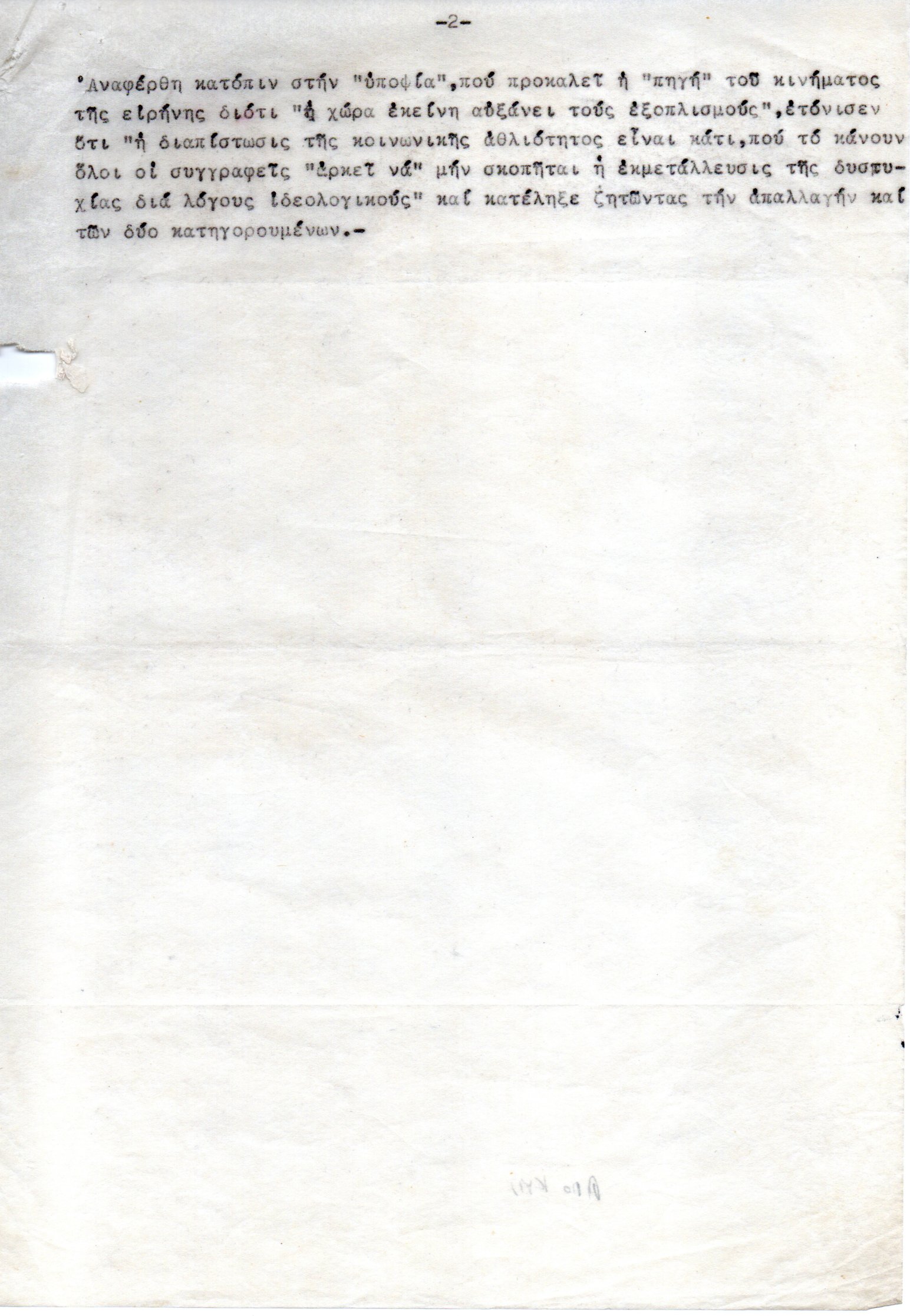
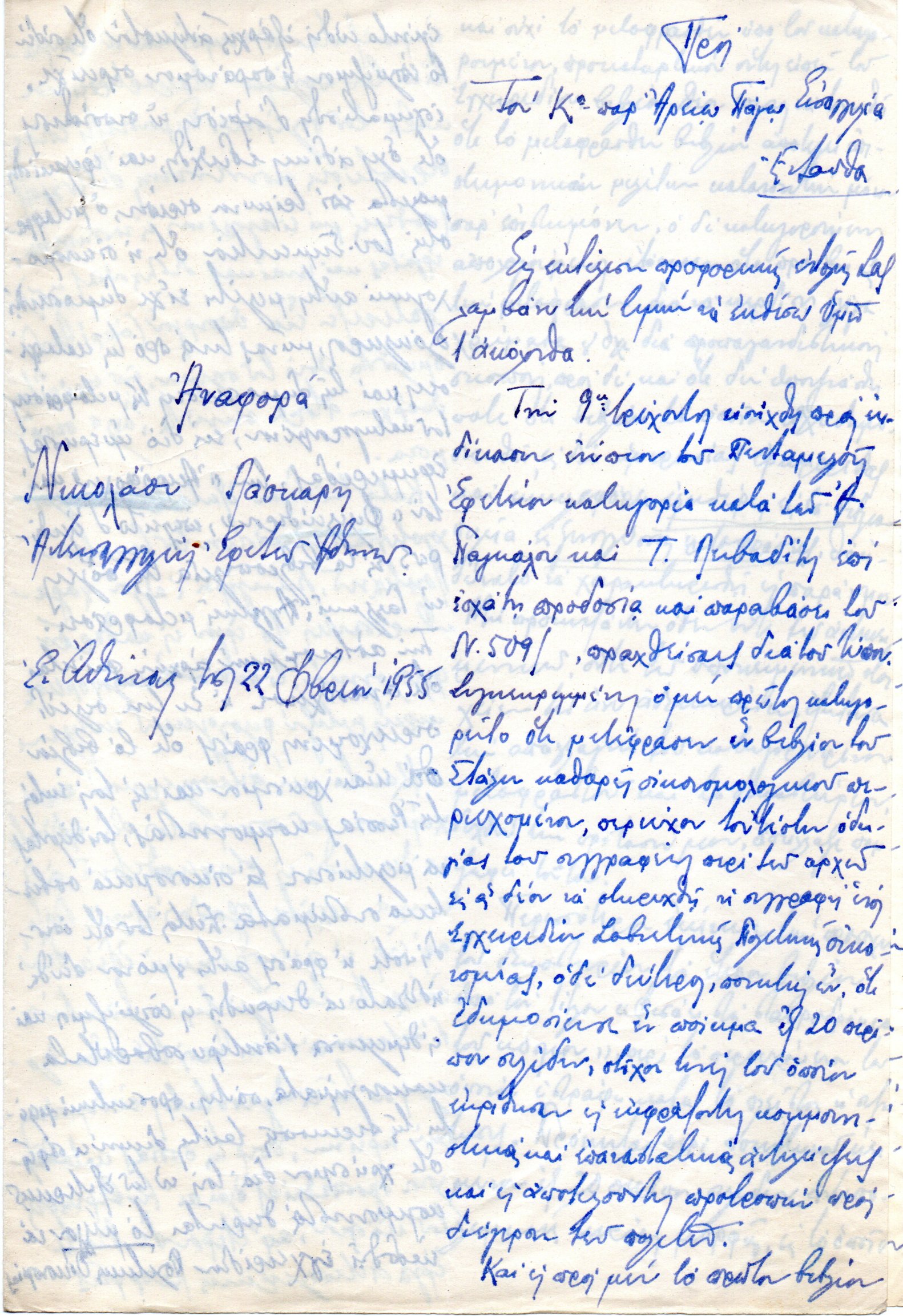
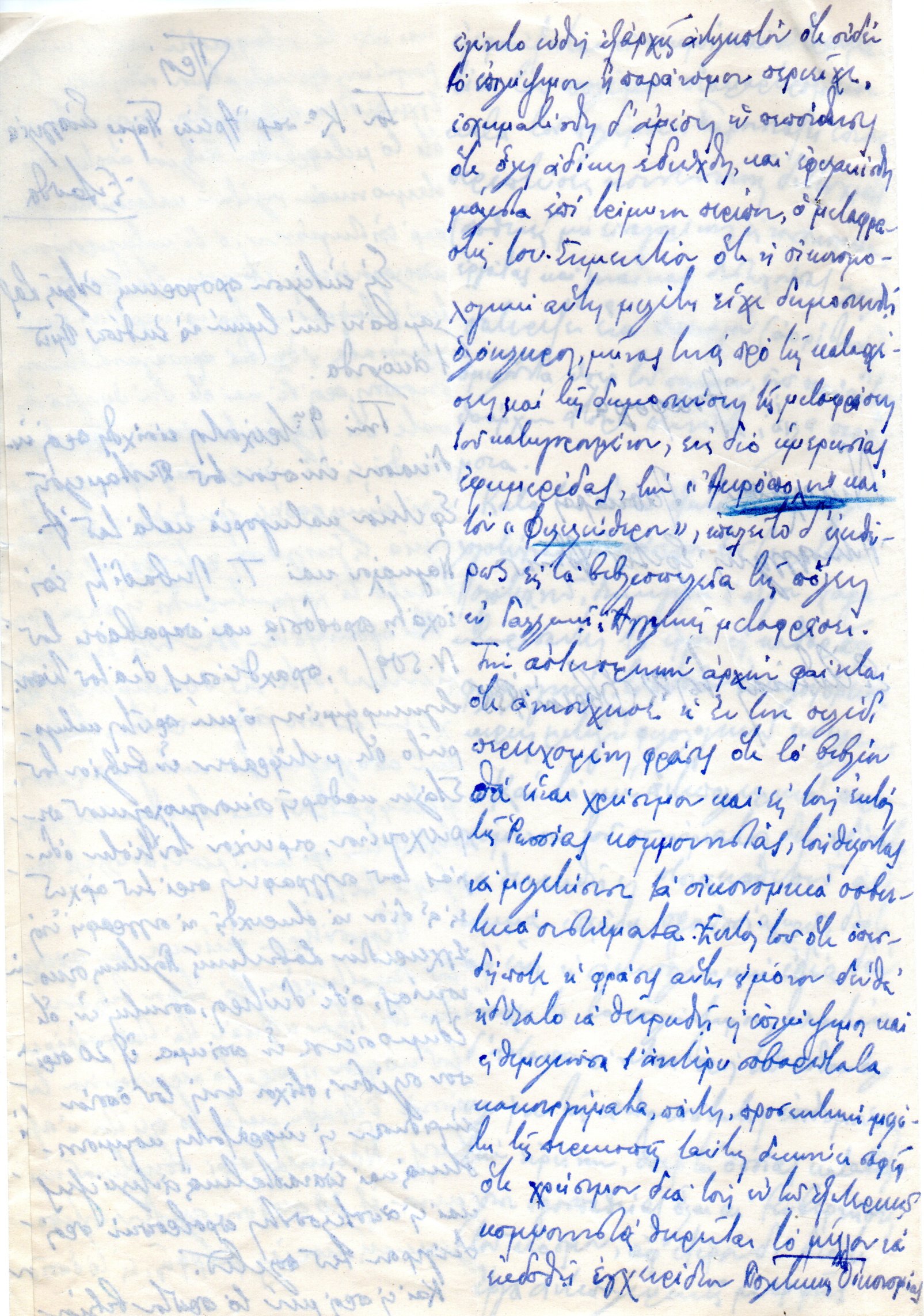
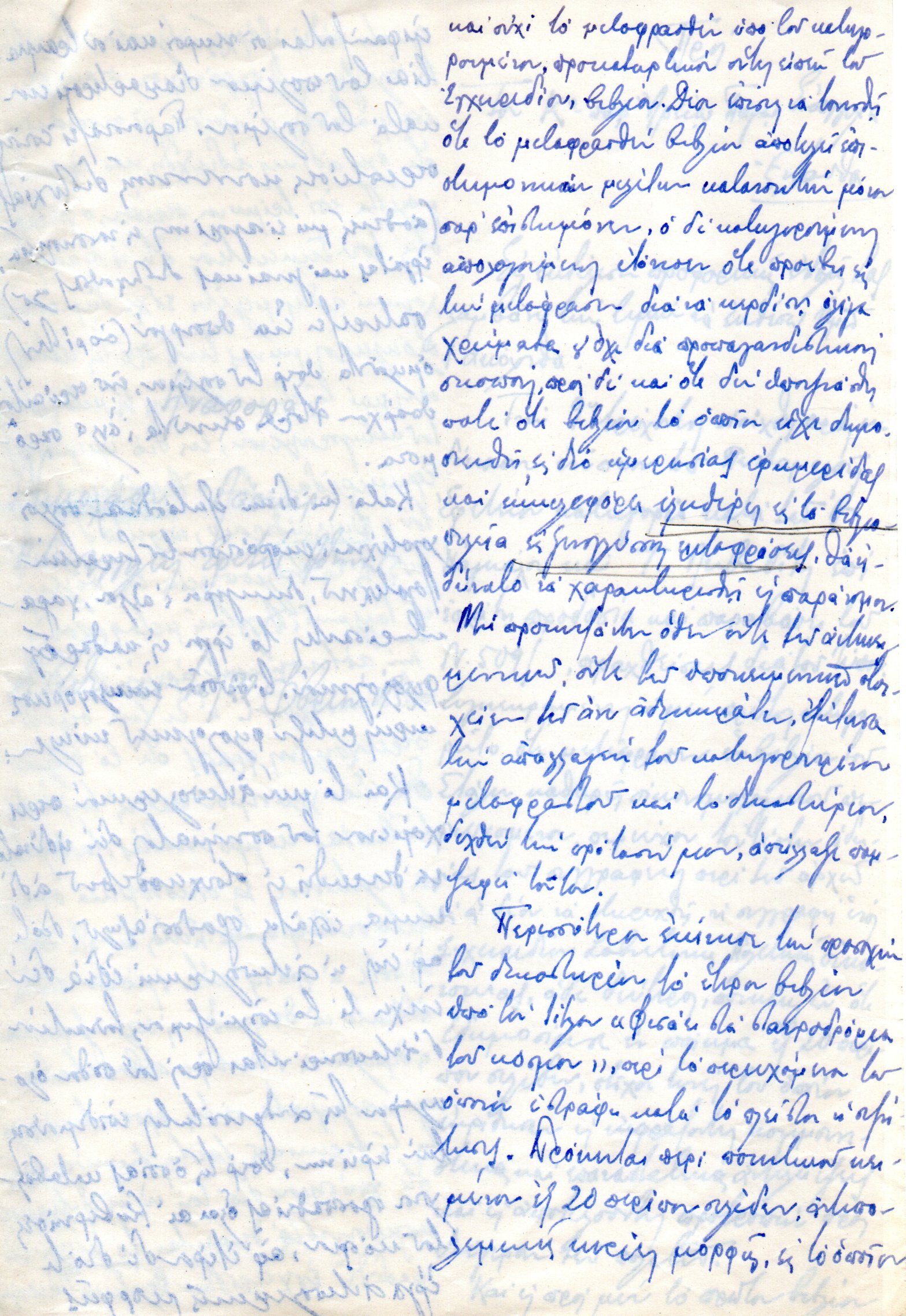

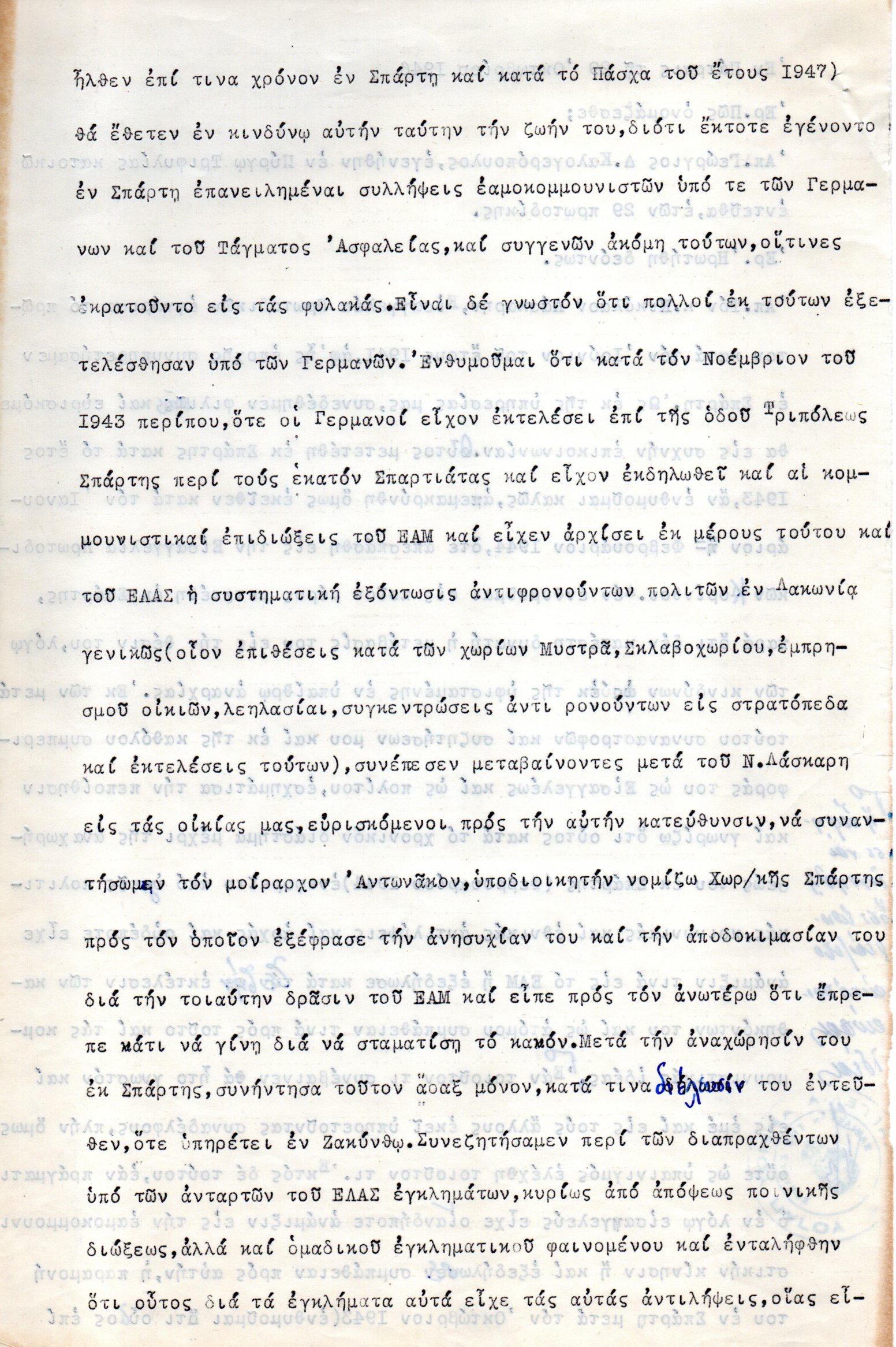
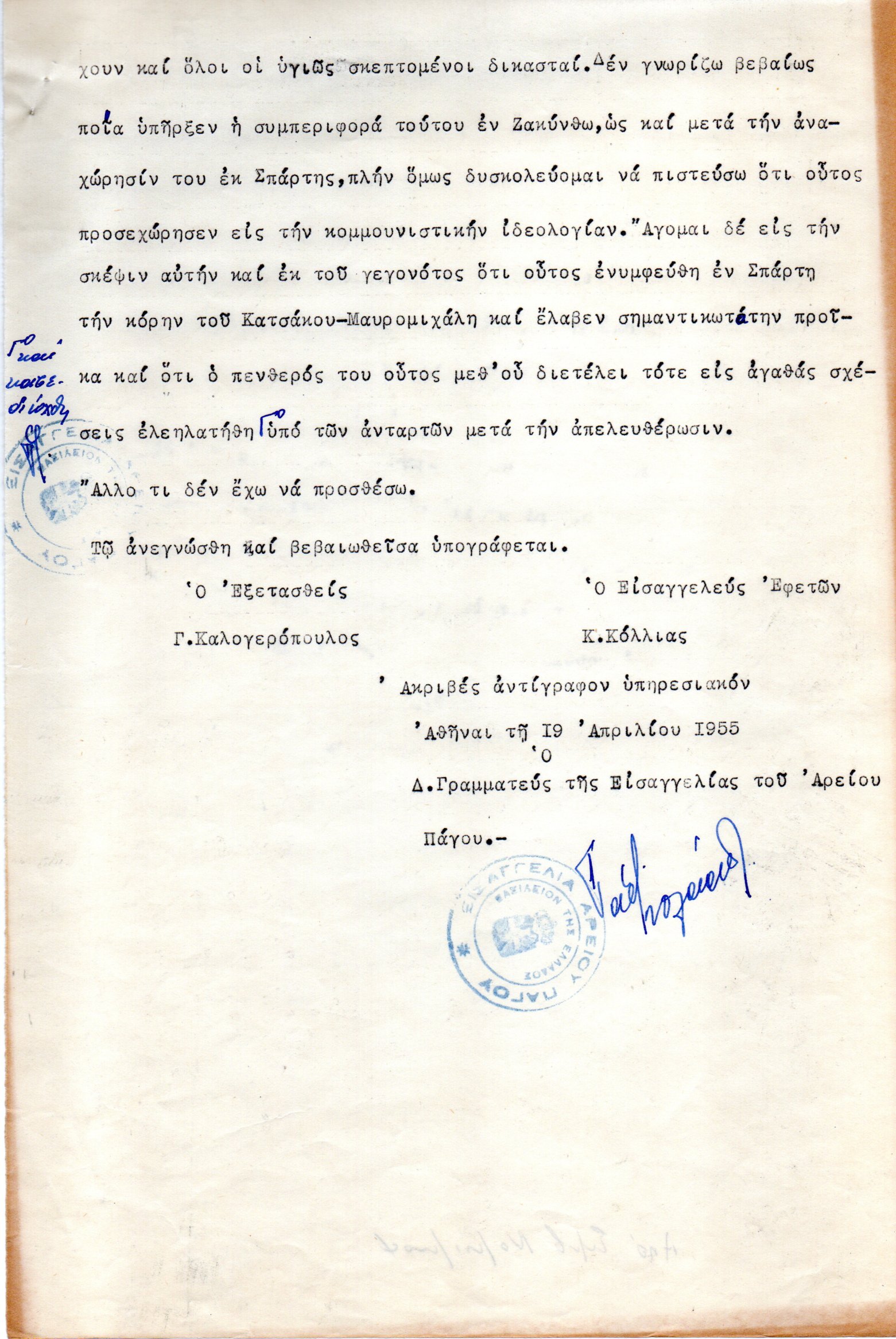
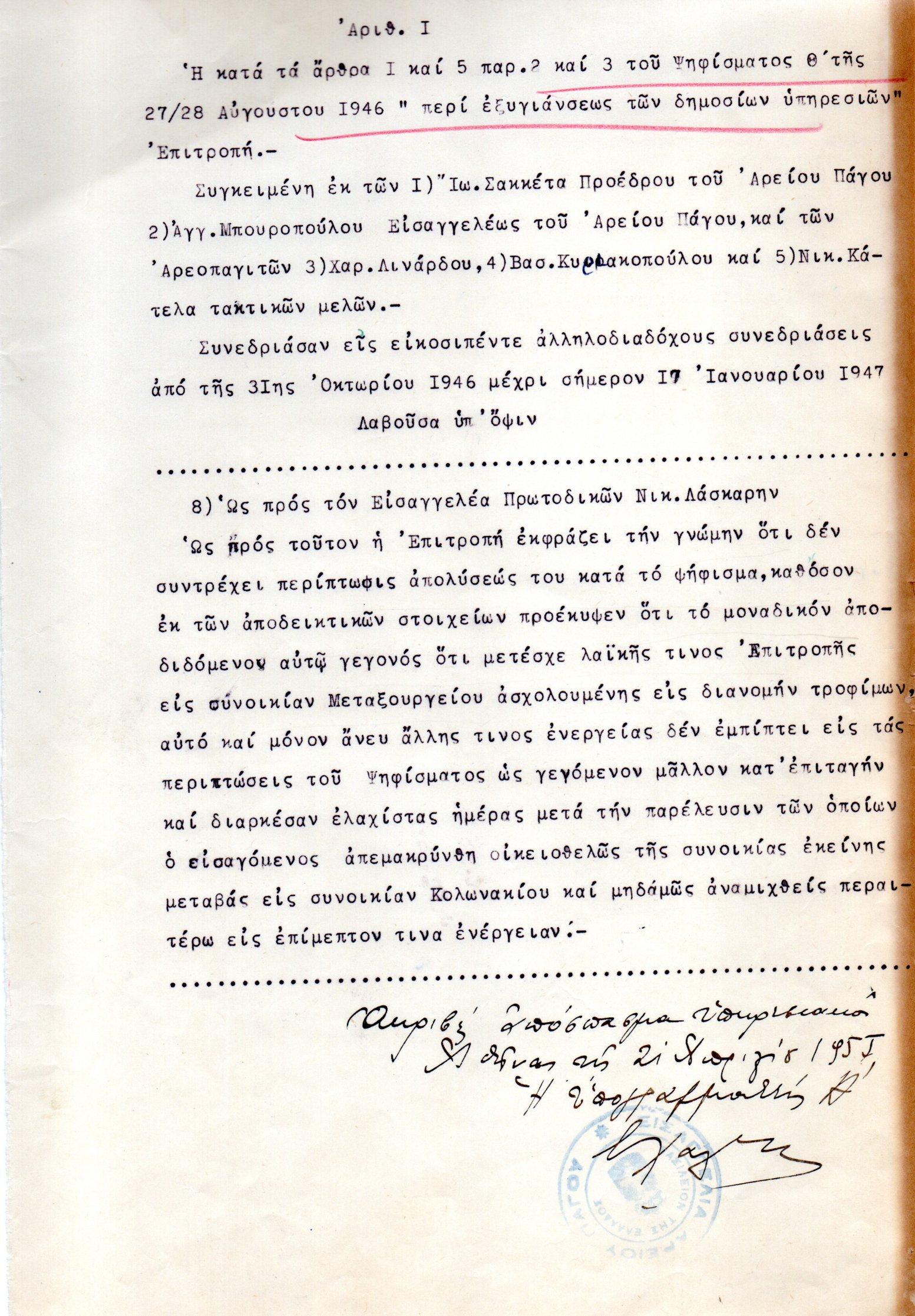
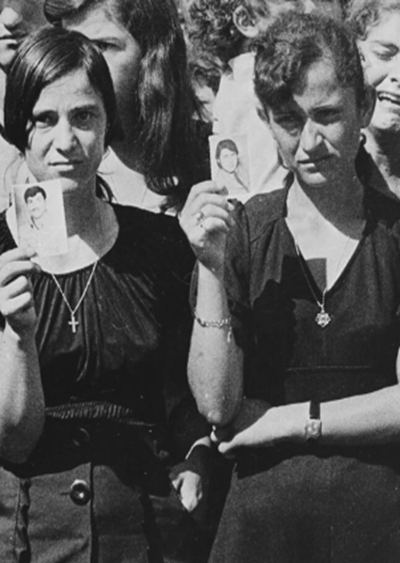
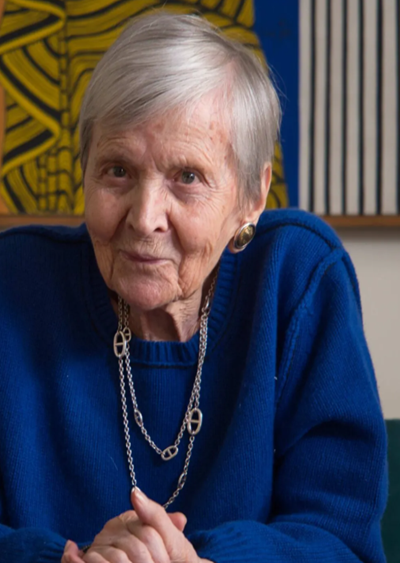
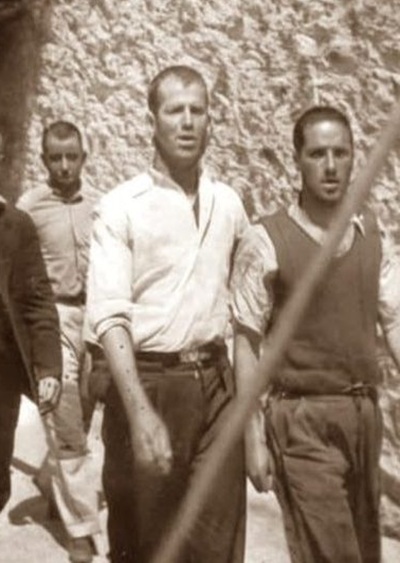
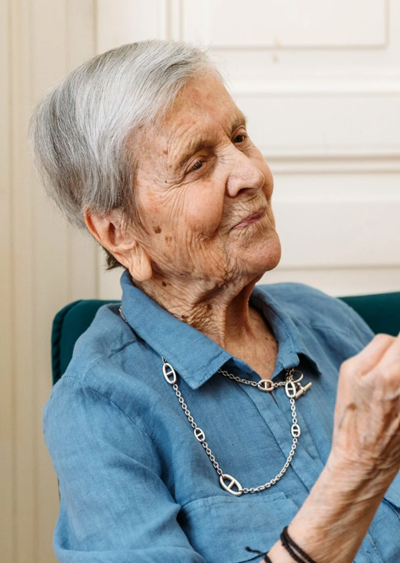


Leave A Comment